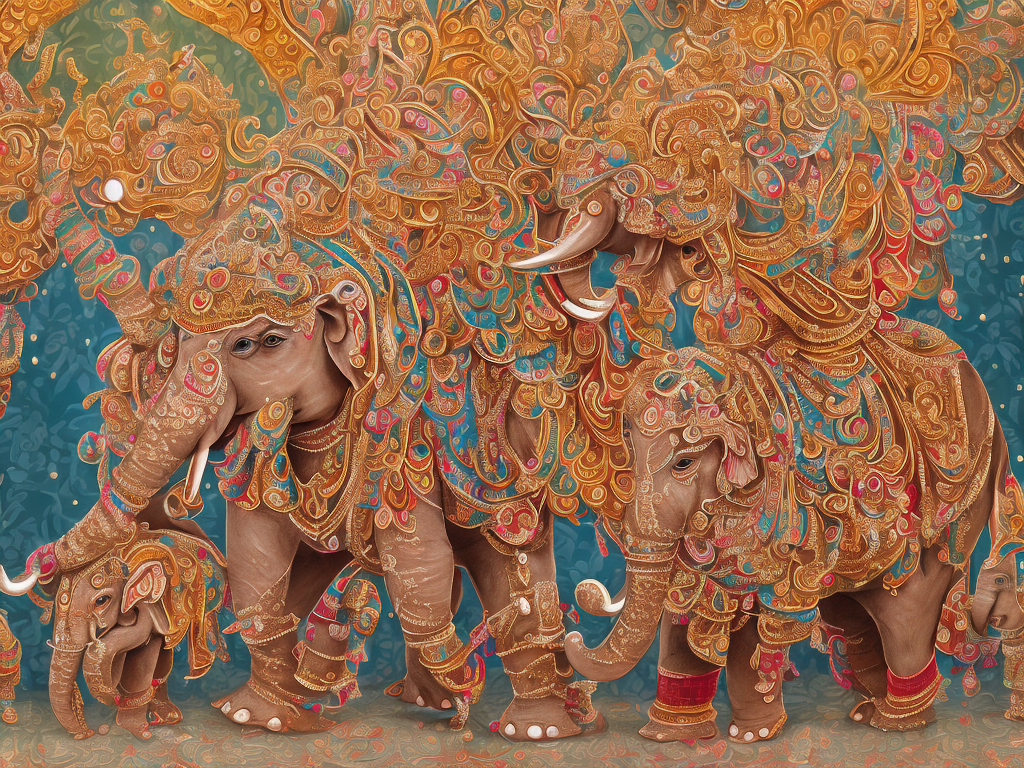
India is a country with a rich cultural heritage, where every day and month holds a special significance. The country is known for its numerous festivals and celebrations that are celebrated with great enthusiasm and fervor. Two of the most commonly celebrated festivals in India are Jayanti and Janmotsav. Although both festivals are celebrated on the occasion of the birth of a significant figure, there are a few differences between the two.
Jayanti:
Jayanti is a Sanskrit word which means birth anniversary. It is celebrated on the birth anniversary of great saints, leaders, and national figures who have contributed significantly to the country. Jayanti is celebrated with great zeal and enthusiasm, and people from all walks of life come together to offer their respects to the celebrated individual.
The festival is commonly observed in India, especially in the southern part of the country. One of the most famous Jayanti celebrations in India is the celebration of the birth anniversary of Mahatma Gandhi, the “Father of the Nation.” The celebration of his birth anniversary is known as Gandhi Jayanti and is observed across the country with great fervor. Similarly, another popular Jayanti is the celebration of the birth anniversary of Swami Vivekananda, the Indian monk and philosopher.
The main objective of celebrating Jayanti is to remember the contribution and teachings of the celebrated individual. It provides an opportunity for people to learn about their lives and teachings, which can help them in their daily lives. Jayanti celebrations typically involve special prayers, speeches, and cultural events such as plays, music concerts, and dance performances.
Janmotsav:
Janmotsav is another festival that is celebrated on the occasion of the birth anniversary of a significant figure. However, Janmotsav is specifically celebrated to commemorate the birth of Lord Krishna. The festival coincides with the eighth day of the Hindu month of Bhadrapada, which usually falls around August or September each year.
Janmotsav is celebrated across the country with great fervor, but it holds special significance in the northern part of the country, especially in the states of Uttar Pradesh and Gujarat. One of the most famous Janmotsav celebrations in India is the celebration of the birth anniversary of Lord Krishna in the town of Mathura, his birthplace. The town is known for its elaborate and grand celebrations that attract tourists from around the world.
The main objective of celebrating Janmotsav is to remember the life and teachings of Lord Krishna. The festival is an excellent opportunity for people to learn about the teachings of Lord Krishna, which are embodied in the Bhagavad Gita. Janmotsav celebrations typically involve special prayers, music, and dance performances, and the preparation of special foods that are offered to Lord Krishna.
Differences between Jayanti and Janmotsav:
Despite the similarities between Jayanti and Janmotsav, there are a few differences between the two. Firstly, Jayanti is celebrated to commemorate the birth anniversary of great saints, leaders and national figures, while Janmotsav is celebrated to commemorate the birth of Lord Krishna.
Secondly, while both festivals involve the performance of special prayers and cultural events such as music and dance performances, the rituals and ceremonies associated with each festival are different. For example, in Jayanti celebrations, speeches are given by eminent personalities who draw inspiration from the teachings of celebrated individuals, and cultural programs are organized to highlight their contributions to society. On the other hand, in Janmotsav celebrations, prayers are performed, and the birth of Lord Krishna is celebrated through music and dance performances.
Thirdly, although both festivals are celebrated with great enthusiasm and fervor, the scale of celebrations differs. Jayanti celebrations are generally more modest in scale and are exclusive to the followers of the celebrated individual, while Janmotsav celebrations are typically grand and open to all.
Conclusion:
In conclusion, Jayanti and Janmotsav are two of the most commonly celebrated festivals in India. Both festivals are celebrated to commemorate the birth of significant figures, but there are a few differences between the two. Jayanti is celebrated to remember the contribution and teachings of great saints, leaders, and national figures, while Janmotsav is celebrated to remember the birth of Lord Krishna. The rituals and ceremonies associated with each festival are different, and the scale of celebrations differs as well. However, despite the differences, both festivals provide an opportunity for people to learn and draw inspiration from significant figures who have left an indelible mark on society.
 Self-Instruct
Self-Instruct